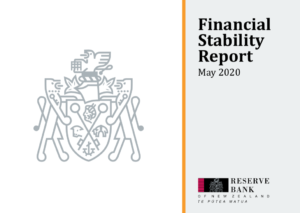A number of New Zealand life insurance companies have been operating with low solvency buffers, with some having been adversely affected by falling interest rates, according to the Reserve Bank of New Zealand’s (RBNZ) newly-released Financial Stability Report.
The report says that in the past six months the RBNZ has applied licence conditions to some insurers requiring them to have stronger capital buffers and to mitigate the impacts of further cuts to interest rates.
The report avoids naming any of country’s 90 licensed insurance firms it is advising.
It says a number of insurers are exposed to investment losses as a result of (downward) movements in interest rates, bond spreads and equity prices. And that some providers of credit insurance appear “…vulnerable to a significant increase in unemployment”.
While it says some insurers’ solvency positions are improved by falling interest rates, elsewhere in the 48-page report, which covers banking, real estate, and house-hold debt, it says Covid-19 will “…present a challenge for some insurers”.

The RBNZ says there is considerable uncertainty as to how Covid-19 and the associated economic downturn will affect insurers and has undertaken preliminary stress testing of insurers’ exposure to a range of channels through which Covid-19 could affect their financial soundness.
The report says: “Death and disability claims to life insurers resulting from Covid-19 do not currently pose a threat to their solvency, as a result of the strong public health response to the initial spread of the virus in New Zealand.
“However, Covid-19 could play out in a number of ways, and it remains possible that a second or further wave of the pandemic will occur in New Zealand,” says the report.
“The Reserve Bank’s life insurance solvency standard requires reinsurance and capital to meet the cost of pandemic death claims for 0.1% of insured lives, which equates to at least several thousand deaths in total in New Zealand.”
Insurers have reported that cancellations and surrenders of policies have been elevated…
The report says gross premium revenue has grown steadily in the past two years for all types of insurers, although net premium growth for the life insurance sector has been lower due to increased reinsurance for a “…couple of large insurers”.
The report notes that most insurers operate conservative investment portfolios, and solvency stresses at insurers do not primarily arise from losses on their investments.
“However, life insurers with higher risk investment portfolios including large equity investments that are not part of investment-linked insurance products are exposed to further declines,” it says.
“General and health insurers are likely to be resilient to all but the most catastrophic of scenarios, and many will see reduced claims in the short-term due to the decreased economic activity.”
Sales volumes of new policies slowed as New Zealand moved to Alert Level 4, says the RBNZ report.
“Insurers have reported that cancellations and surrenders of policies have been elevated, and increasing numbers of customers have applied for financial hardship offerings.”
The RBNZ is the prudential regulator and supervisor of all insurers in New Zealand, and is responsible for administering the Insurance (Prudential Supervision) Act 2010.
The private insurance sector in New Zealand accounts for about $29 billion in assets, or 12% of GDP. Life insurers account for around 25% of the total insurance market, with health insurers sitting at around 13 percent.
In March, the RBNZ announced it would delay or slow down most of its regulatory initiatives for an initial period of six months in response to Covid-19.
In addition to deferring the start date of implementing its Capital Review decisions by at least 12 months, the RBNZ will defer external-facing work on its review of the Insurance (Prudential Supervision) Act 2010.





